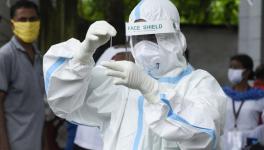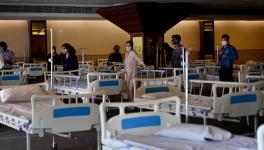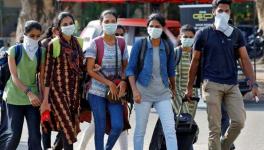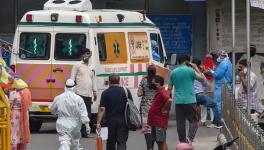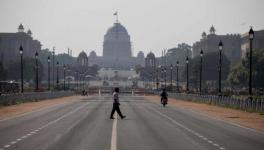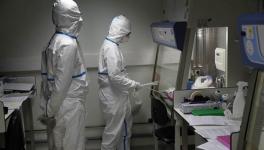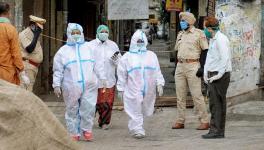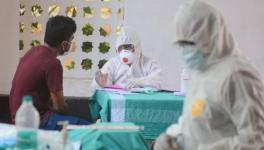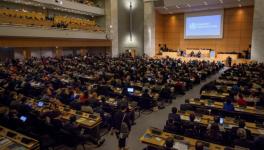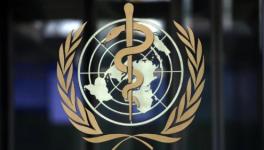COVID-19: WHO’s Global Blood Test to Assess the Real Picture of Infection Spread
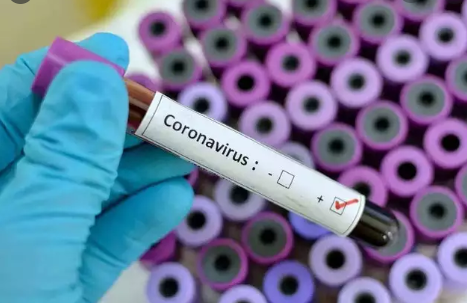
Image Courtesy: The Economic Times
As each day passes, the COVID-19 pandemic gives us new data, more information and possibilities for investigating and understanding it. The world needs correct numbers; the number of those infected and the death-rate among different age groups. So far, testing has been based on the nasopharyngeal swabs of the infected. But, a large swathe of studies have now come to an understanding that there are several cases of the novel coronavirus infection where symptoms are not shown. Those cases have gone untested and chances of further spread of the infection from the asymptomatic cases also remain very high.
Having a better understanding of how infectious the virus is and its spreading, needs another testing mechanism, and antibody testing appears to be the possible way. Even in an asymptomatic case, the body will build an antibody against the virus after exposure. This is expected to put forth a clearer picture that represents a good approximation of those infected worldwide.
The World Health Organization (WHO) is planning a study where blood samples are to be tested for the presence of the antibody against the novel coronavirus. Named Solidarity II, the programme will involve more than half a dozen countries and will be launched in the coming few days, said Maria Van Kerkhove, the American infectious disease epidemiologist helping coordinate WHO’s response to COVID-19.
“Knowing the true number of cases—including mild ones—will help pin down the prevalence and mortality rate of COVID-19 in different age groups. It will also help policymakers decide how long shutdowns and quarantines should last. These are answers we need, and we need the right answers to drive policy,” said Michael Ryan, WHO executive director for health emergencies.
Biomedical companies and laboratories around the world are in a race to develop tests which would detect antibodies against the novel coronavirus in people’s blood. Commercial kits for antibody testing are not available yet, although specialist labs have accurate ways of measuring antibodies from a blood sample.
One of the first such efforts was reported in the pre-print medical science server medRxiv by Florian Krammer and his team at the Icahn School of Medicine, Mount Sinai, US. Taking the effort further, Jay Bhattacharya, a health policy expert at Stanford University says that his team is aiming to test 5000 people in Santa Clara county, California, for antibodies. He claims that his study is almost 90% in accordance with the investigation protocol of WHO.
On Tuesday, researchers from the University of Bonn launched an antibody study of about 1000 people from the Heisenberg area of West Germany, one of the hot-spots of the outbreak. Hendrik Streeck, a virologist from Bonn University said that the study follows WHO protocol and initial results could be announced as early as next week.
The antibody study could shed some light on a pattern that has emerged from the pandemic – fewer confirmed cases in children and teens. Whether this is due to the fact the children and teens have mild symptoms and go untested or that they do not get affected at all, could be deciphered from the antibody study. The information is also crucial for assessing how many schools and daycare centres are susceptible to a viral spread.
“The fact that we’re talking about all these studies just 3 months (after the disease was first recognized) is incredible. However, any results will be preliminary. We want to latch on to any information that comes out. But we do need to interpret these initial results with caution,” said Van Kerkhove.
Get the latest reports & analysis with people's perspective on Protests, movements & deep analytical videos, discussions of the current affairs in your Telegram app. Subscribe to NewsClick's Telegram channel & get Real-Time updates on stories, as they get published on our website.









